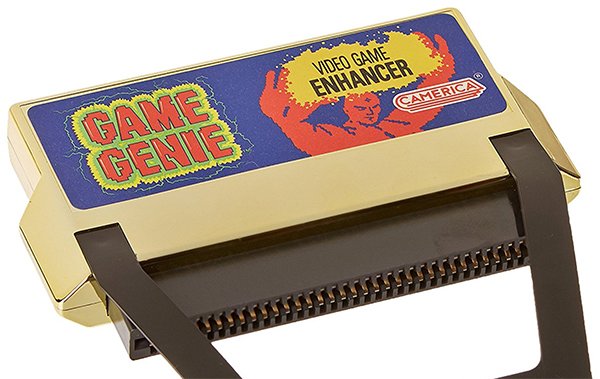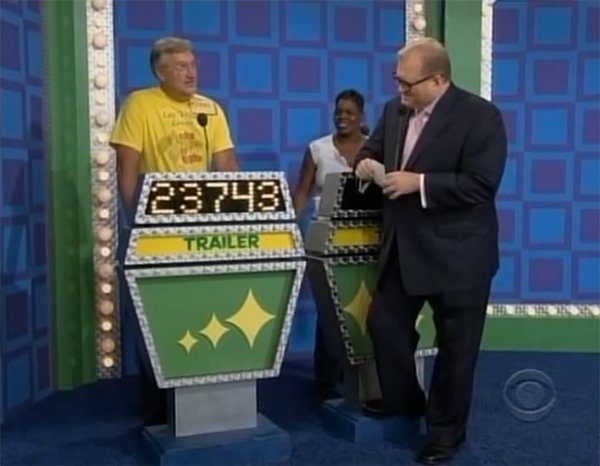5 Times That Suspected Cheaters Weren't Actually Cheating
by Ian Fortey
People love using the phrase "cheaters never win," but it's almost always said about the ones who got caught. It's not just said as a moral warning, though ... there's just something satisfying about the idea of cheaters getting their comeuppance. But what happens when not everyone even agrees that a person cheated in the first place? That may sound like an odd question, but it happens way more often than you may realize.
Card Counters Force The Courts To Rule That It's Not Considered Cheating
If movies are any indication, everyone wants to cheat a casino. They're easy targets for plots, because the casino is constantly trying to cheat you ... their business model makes them perfect villains. Or at least in the eyes of the audience, it sets up a seemingly victimless crime. If only there was some way you could gather a dozen friends to rip them off in real life. Man, that would be awesome.
Well, as luck would have it, you can! Sort of.
It turns out that card counting is not illegal (though it is illegal to use devices or other people to help you do it). Still, it's not welcome in casinos because ... well, you know, it helps you win. The Hyland card counting team were a big part of what is and isn't protected under law. Because a casino totally tried to arrest the crap out of them for pulling it off.
Tommy Hyland used to run teams of blackjack players, all trained in card counting and something called "Ace Sequencing," which involves spotting the Ace in a deck and working to make sure the player gets it. They'd hit up casinos, score big, and probably go have like a hundred burritos to celebrate. But in 1994, Hyland and his group were shut down at Casino Windsor in Canada and arrested. At trial, it came out that some stakeholders from Las Vegas who had interests in the Canadian casino pushed for the prosecution.
Unfortunately for the casinos, the judge ruled that Hyland's crew hadn't cheated at all ... that it was just an intelligent strategy. Because of them, you're now free to count cards until the cows come home or until someone notices you doing it, at which point they will absolutely kick you out and ban you.
110 People Win The Lottery ... Everyone Incorrectly Assumes They Cheated
Fortune cookies are basically nothing. Crunchy nothing. But they also have lucky numbers crammed inside them, and that's what's relevant to this story. That and a heck of a lot of money.
In 2005, 110 people matched 5 out of 6 numbers in the Powerball lottery. Based on the odds, that should have only happened with 4 or 5 people. The immediate suspicion was that there was a ring of cheaters, because there's no way so many people could have picked those exact same numbers by sheer luck.
Each winner was entitled to between $100,000 and $500,000 depending on how much they spent. The total payout could have cost up to $19 million, overall. Lottery staff tried to figure out what happened, but it wasn't until the winners started rolling in to collect their fat cash that it became clear: they had played the lucky numbers from fortune cookies.
"It had the date and time of my death. Then it just ... vanished."
See, it turns out that fortune cookies aren't produced by magical cookie wizards, chained to the stove in the back of the restaurant. They just come from a random factory that prints a heck of a lot of the same fortunes, meaning your destiny as determined by fried and individually wrapped snacks has long been a lie. GASP!
It also means that, ironically, a lot of people got the same lucky numbers that actually were lucky on that one weekend.
Nintendo Loses A $15 Million Court Case To The Game Genie
Back when I was but a wee lad in the late 1700s, I had a Nintendo Entertainment System. Or, to be more specific: my brother had one, and I just lived in it. It was the funnest thing since the invention of "gently nudging roadkill with your foot" ... which if we're being honest, didn't take much skill to play. Thank God for Nintendo.
Though I'll always appreciate how it revolutionized my time-wasting activities, I have to admit that Nintendo was a circus of brutality. The speeder bike level in Battletoads. The swimming level in Ninja Turtles. All of The Karate Kid. Nightmares, every damn one of them. You could waste days upon days just trying to progress 5 minutes into a game. It was madness. And then came the Game Genie.
The Game Genie was a nifty little device you plugged your cartridge into, then you plugged the whole thing into the Nintendo. No kid understood how it worked, but it allowed you to modify a game like a master hacker. You could have endless lives, the best weapons, skip levels, be invincible. It was awesome. Nintendo hated it.
For a solid year, Nintendo held Galoob, makers of the Game Genie, in a court battle over whether or not the Game Genie was creating derivative works. Meanwhile, in Canada, children enjoyed the Game Genie unabated, and Sega fully embraced the product as a cool way to enhance a game.
The court eventually decided that the Game Genie was not cheating Nintendo and was not violating their copyrights. Nintendo had to pay Galoob $15 million for lost income over the year they couldn't sell their product, and kids everywhere rejoiced at finally being able to have all the cool guns as soon as they started playing Contra.
Grunting While Playing Tennis Is An Actual Hot-Button Issue
I'm not much of a tennis fan, but I am big on grunting. I grunt when I stand, I grunt when people ask me questions to which I have no answers, I grunt every time I realize I forgot to pay a bill and I'm mostly broke. So I'm halfway to being a tennis all-star!
If you've ever watched tennis, you've likely noticed that 70% of a player's energy is spent on the massive grunt they belt out while hitting the ball. Maybe you even found that annoying. Well, you wouldn't be the only one. Lots of players hate it, too. They hate it so much, in fact, that they've publicly denounced it as cheating.
Sound stupid? Let me one-up that statement: Official United States Tennis Association rules actually include a section on in-game grunts. Section 37 of the rule book is entitled "Grunting." The rules state that players should avoid grunting, because any grunting that affects the game is a hindrance. An official may penalize a player as a result on a case by case basis.
Martina Navratilova straight up called it cheating and said something should be done about it, while other players apparently aren't even aware they're doing it. There have even been times when a match was stopped due to players complaining, only to have judges deem it OK and the crowd boo the grunter all the way back to the majestic tennis fields of their homeland.
But technically, it's not cheating. I guess I'm not shocked about that part ... I'm just surprised that it's an issue at all. Well, until I heard how Maria Sharapova does it. And then saw the video of the crowd mocking her for it.
The Player Who Was Too Perfect On The Price Is Right
When I was a kid, the one upside of being sick was staying home and watching The Price Is Right. Bob Barker's skinny microphone was a magic wand that whisked me to a world of things I never actually wanted and also could never guess the value of. But it was nice to see other people super excited by lawn furniture and scooters.
Barker was eventually replaced by Drew Carey, but the concept is the same as I understand it: people say prices, and if they're right (without going over, mind you), they win stuff. And while everyone loves a winner, sometimes they get suspicious of someone who's just too much of a winner.
"New rule: We're now using decimal points."
Terry Kniess, a 60-year-old former weatherman, made it onto the show back in 2008. He and his wife had planned their visit for months, watching every episode, every day, until Kniess noticed a vital piece of information: The Price Is Right is repetitive as hell. So repetitive, in fact, that they keep using the same prizes at the same price. That was all Kniess needed.
Kniess was a bit of a blackjack shark and had a head for counting cards, so remembering and organizing numbers (in this case, prices) in his head was no big deal. When he got called onto the stage, he set into motion a series of events that ended up dragging Drew Carey through the mud.
Kniess made it to the Showcase Showdown at the end, and when it was his time to bid, the crap hit the fan. He bid $23,743. It was a bizarrely precise number to anyone watching ... but it was also exactly right. Kniess knew it, because in the months leading up to the show, he had mentally cataloged the price of every item. Drew Carey thought he had a ringer in the crowd helping him, and the producers thought he was revenge from a recently-fired producer of the show.
They actually cut the show off after his bid, and when they finally did air it (in the middle of December where TV shows go to die), audiences saw Drew Carey barely give a damn about the winner ... you know, the sole player to ever guess the exact right price on a showcase.
No one believed Kniess at first, so he was labeled a cheat, even though no one could prove he cheated. Carey was even accused of being part of a rigged show. Eventually, Kniess managed to satisfy the producers that he was just a regular dude who gamed them, but the whole thing made everyone involved looked pretty bad.








